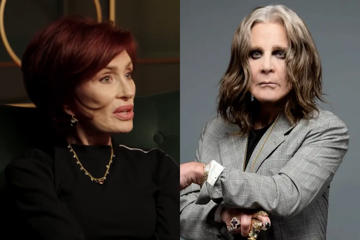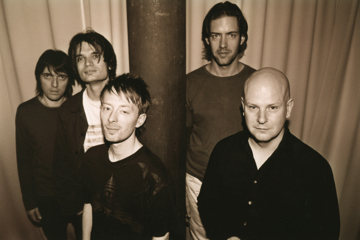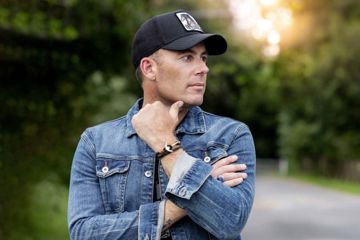Maria Bamford & Felicity Ward Are Doing Just Fine, Thank You
Maria Bamford and Felicity Ward are two comics whose struggles with mental illness have been at the forefront of their comedy – both their stand-up and on television. They explain to Hannah Story how this year they’re barely talking about that at all.
We get Maria Bamford, whose Netflix series Lady Dynamite fictionalised her experience with bipolar disorder, on the line at about 3.30pm Los Angeles time. She says she’s “excited” to return to MICF for the first time since 2011: “Melbourne is such a wonderful place for me - it was such a positive experience [last time] so I'm grateful that I've been invited back.”
She sees her attraction to stand-up as like the reason “flowers grow towards the sun – it feels good and it’s the thing to do”.
“The reason I think that I do [stand-up] is because of the community and the experience itself, which is a creative act. I wish I were into knitting because maybe people would appreciate that more at Christmas, and I'd be doing less promotional tweets if knitting was my thing. Unfortunately it's stand-up, and I'm sorry. Everybody loves a hat.”
Felicity Ward calls from her mother’s home on the NSW Central Coast – she’s visiting, having moved to the UK many years ago. Back in 2017, Ward’s 2015-16 show about irritable bowel syndrome and anxiety, What If There Is No Toilet?, landed on Netflix in the UK. This year though, Ward’s Busting A Nut, which she premiered at last year’s Edinburgh Fringe, where it copped a nomination for Best Comedy Show, barely speaks about mental illness at all.
The title, though, might give some people some misleading ideas – she admits she really just thought it was a funny phrase that worked on multiple levels, ‘nut’ being a “pejorative term for mentally ill”, and ‘busting a nut’ meaning to work really hard, while also being a “very blue term for jizz”.
“I thought, 'Well, they're three things that I talk about,’ or, ‘I work hard and talk about mental health and my material's pretty blue.' And you've gotta come up with a name like seven months before the show so I just thought, 'Oh, it'll probably be those things.' There's the tiniest bit about mental health but not really.”
Don't miss a beat with our FREE daily newsletter
The new show is full of material about her year off the Fringe, spurred by the realisation that she was working herself into the ground, and into depression. Both her husband and a close friend suggested she take the year off.
“First I was very offended at that - I'm like, 'I can do anything,' which is the problem with anxiety, because your brain says you can do anything and then you try to do anything and then you can't and then you get worse.
“This year, going back into it, this show has no themes, it has no lessons, it's not smart, it's not deep - all it is is funny. That's it.”
Bamford isn’t going into her mental health much either, and she’s not worried about people coming into her show, titled The Irrelevant Redundancy, and being disappointed it’s not what they expected.
“One of my jokes is I would worry about that because I don't have very much of that material right now, because I've been feeling so good. I would worry about it but I'm on anti-psychotics and it's not really possible for me to worry, so oh well.
“I don't find suffering intriguing. I don't think it necessarily has to be a part of comedy. You can also make jokes about beauty - why don't trees have more of a social media presence, because they're really pretty? It's just too bad. They could be getting hits, they're not. They're just not putting themselves out there.”
Instead Bamford says her show is covering “issues that a 48-year-old white American female would find interesting”.
“I'm married so some things amongst that, and money, being a business person. Let's see, what else, religion - I've always liked to obsess about ethical issues. I'm calling it The Irrelevant Redundancy just in that, I know I am a dinosaur and I'm sinking into the tar. There's so many beautiful new voices in comedy that need to be heard, so I just want people to know you might wanna see something else too.”
Even though their shows this year don’t go into the mental health issues some audiences may expect them to, both women are often approached by people who tell them they’ve been helped by their work.
Bamford says when that happens she feels “extremely useful, it makes me feel really good” because she knows that stand-up is more of a luxury than a need. “I’m grateful that anyone will come out and see the live performance. It’s wonderful.”
But she also notes that she knows that feeling of being helped by someone’s work when at a low ebb: “I know I felt so much help from other, not just comedians, but writers and all sorts of people in life who have given me renewed inspiration or a feeling of not being alone, and I've really appreciated that.”
Ward is full of stories of people who have told her they’ve been helped in some way by her work – but sometimes she “forgets that it means something to people”.
“I'm not flippant about other people's experience, but I'm semi-flippant about my experience because I've talked about it so much.”
Ultimately she lands on the point that impacting people’s lives is “mind-blowing. It's not what I set out to do. But it's a lovely side effect of it”.
“I think it's much easier to hear difficult subjects spoken about in the context of a joke. It's a lot easier to swallow and often with mental illness it can be very earnest and it can be very heartfelt. [But] there's a lot of very funny things about mental health.
“It's also nice to be making jokes from the inside so the people that have it feel like they're in on the club... [For What If There Is No Toilet?] front and centre were the people who had mental illness and IBS, and it was a show for them, but everyone was invited.
“A nice outcome to it is being able to make jokes about it and not make people feel bad - they don't walk away questioning their life, they walk away feeling included.”







